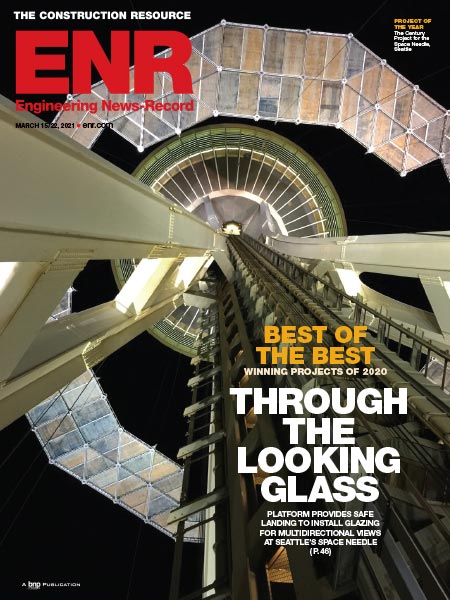Some $4.8 billion in tunneling will be bid in four contracts. Surface works, worth some $4.4 billion, will be split into three to six packages. A single contract will be used for each of the four stations, together valued at $4.3 billion. Rail systems will be covered by four to six contracts, together worth around $2.5 billion. HS2 Ltd made its first formal industry outreach at a forum in November, attracting 600 firms. With industry consultations, HS2 Ltd aims to finalize its strategy this summer for a 2015 or 2016 construction start.
But the project faces major legal hurdles, and legal action is now before the U.K. Supreme Court. An unfavorable ruling would force the government to repeat environmental and other processes, substantially delaying work.
HS2 opponents were encouraged last fall when the government downgraded the benefit-to-cost ratio for HS2's phase one to 1.4 from 1.6 and to 1.8 from 2.2 for both phases. Increased tunnel lengths were among reasons cited for the cost hikes.
HS2 also must survive the arcane British "hybrid bill" system, which mixes general government legislation with private bills that affect only parts of the population. "Hybrids" have been used on major projects 12 times since 1979.
Special committees in both house of Parliament will vet the bill and receive petitions from affected entities. Any hopes of completing legislation before the May 2015 general election are "extremely unrealistic," says Duncan O'Connor, associate with law firm Pinsent Masons LLP, London.
The hybrid process is "onerous on program teams ... with the number of conditions you have," says Andrew Wolstenholme, CEO of Crossrail Ltd., which has gone through the hybrid process. "There will be hundreds, probably thousands" of conditions for HS2.
But the process has an upside, says Ailie MacAdam, Crossrail's delivery director. Since the hybrid process defines in detail all constraints, "we know what we are accountable for, and that, to me, is really useful to have at the start of the project."











Post a comment to this article
Report Abusive Comment